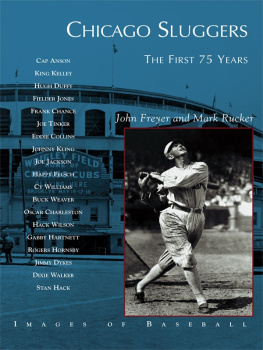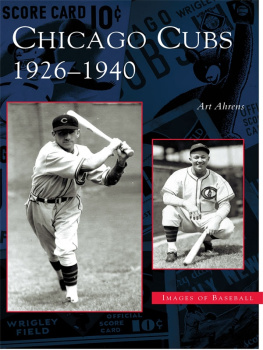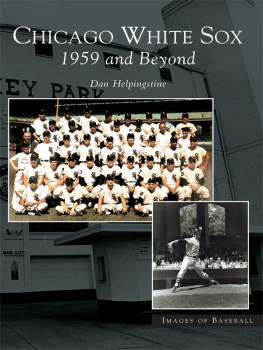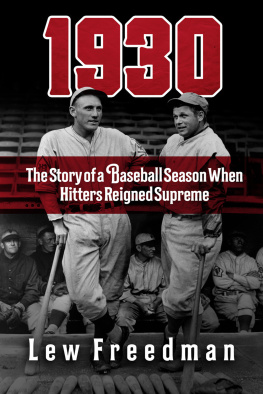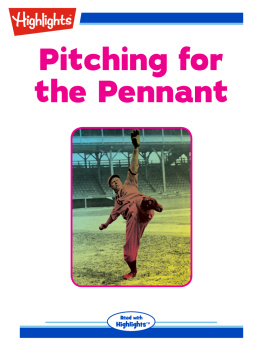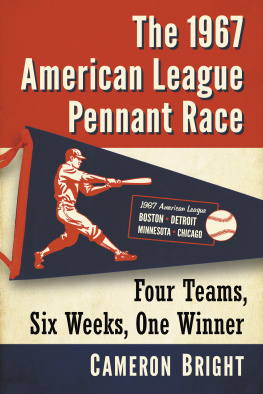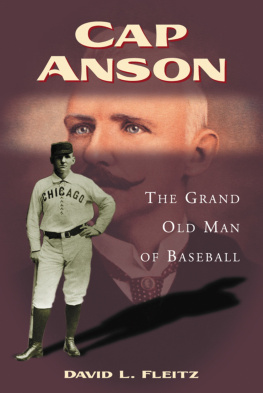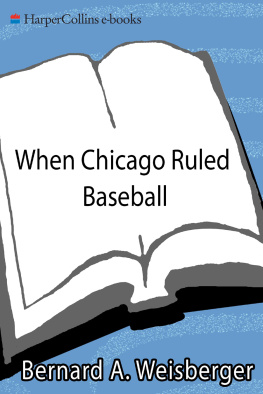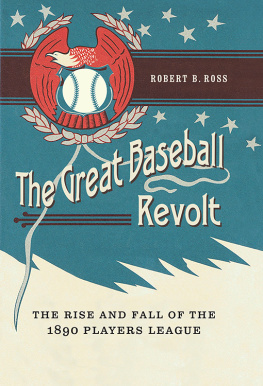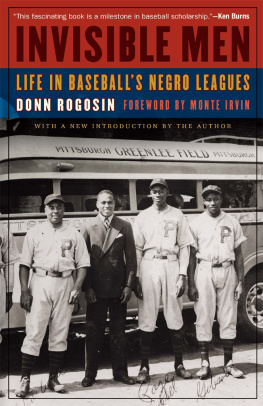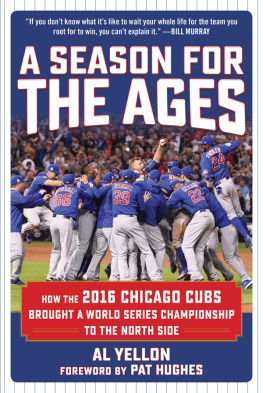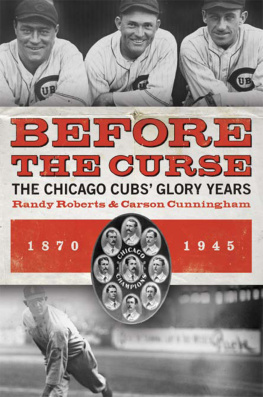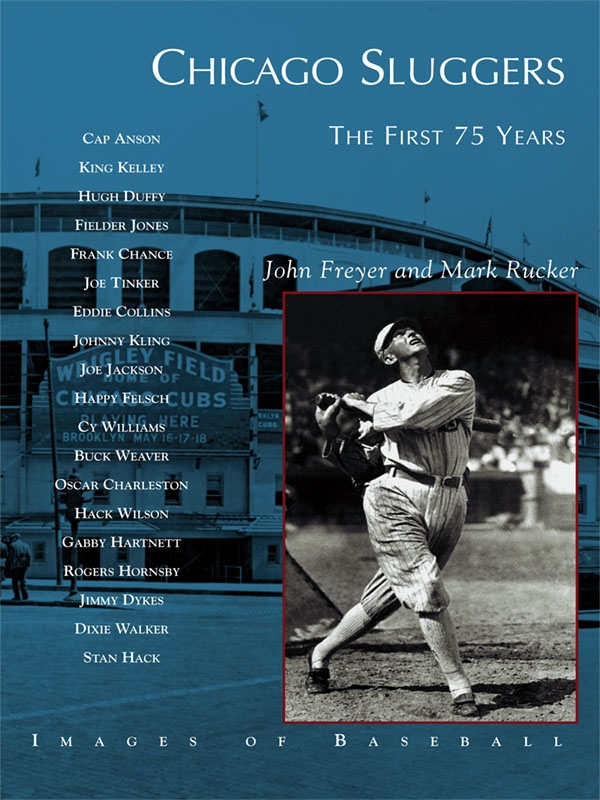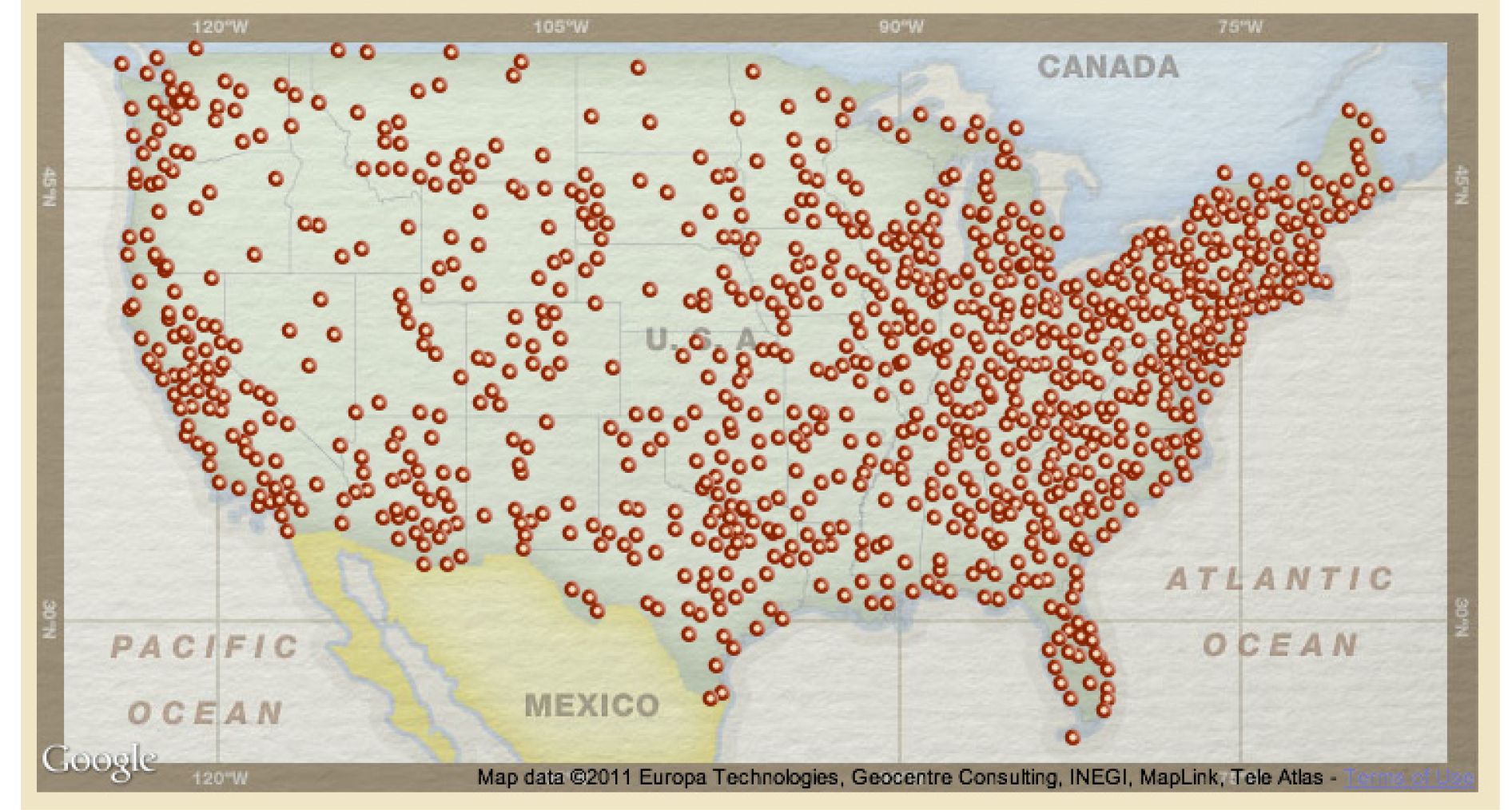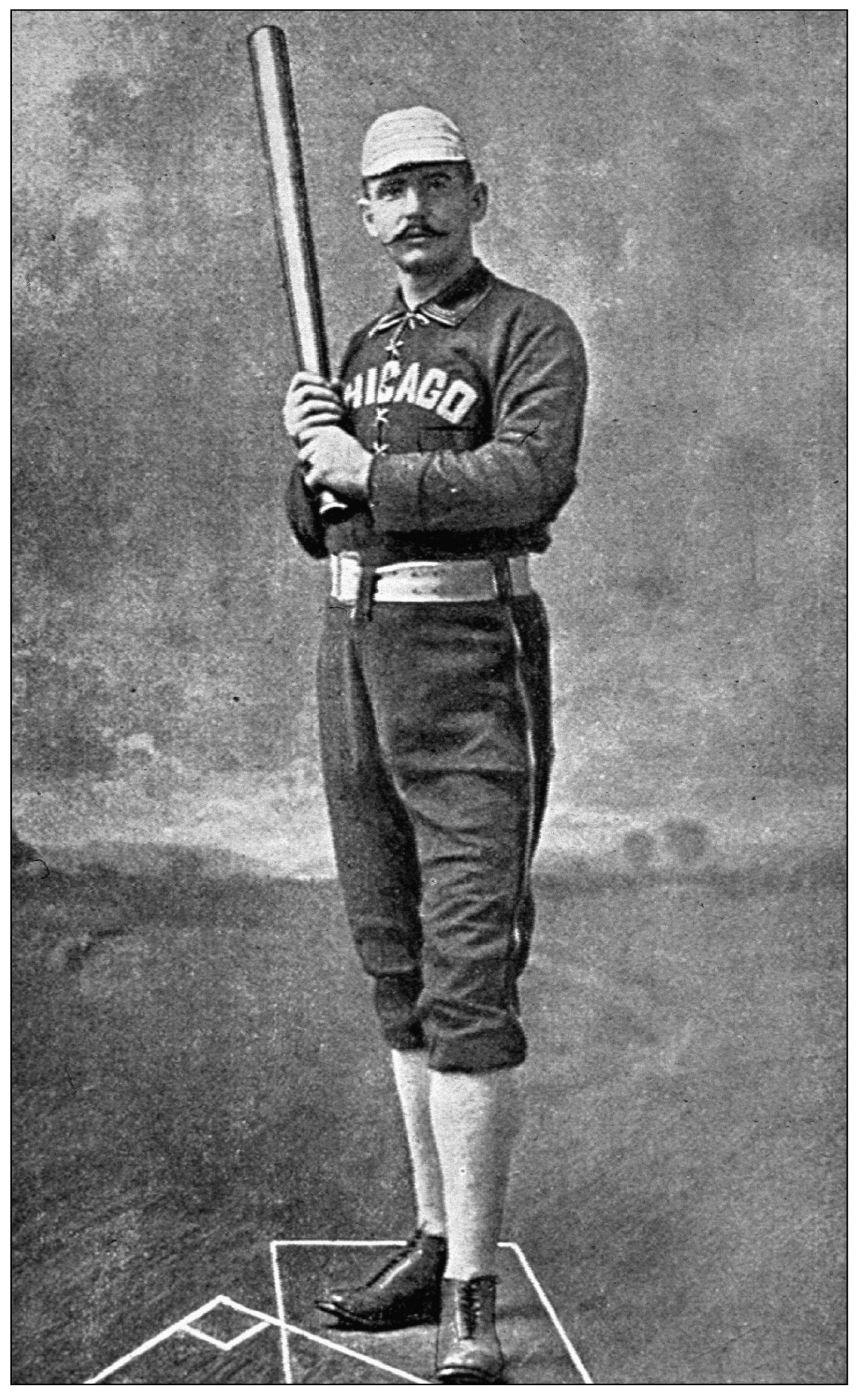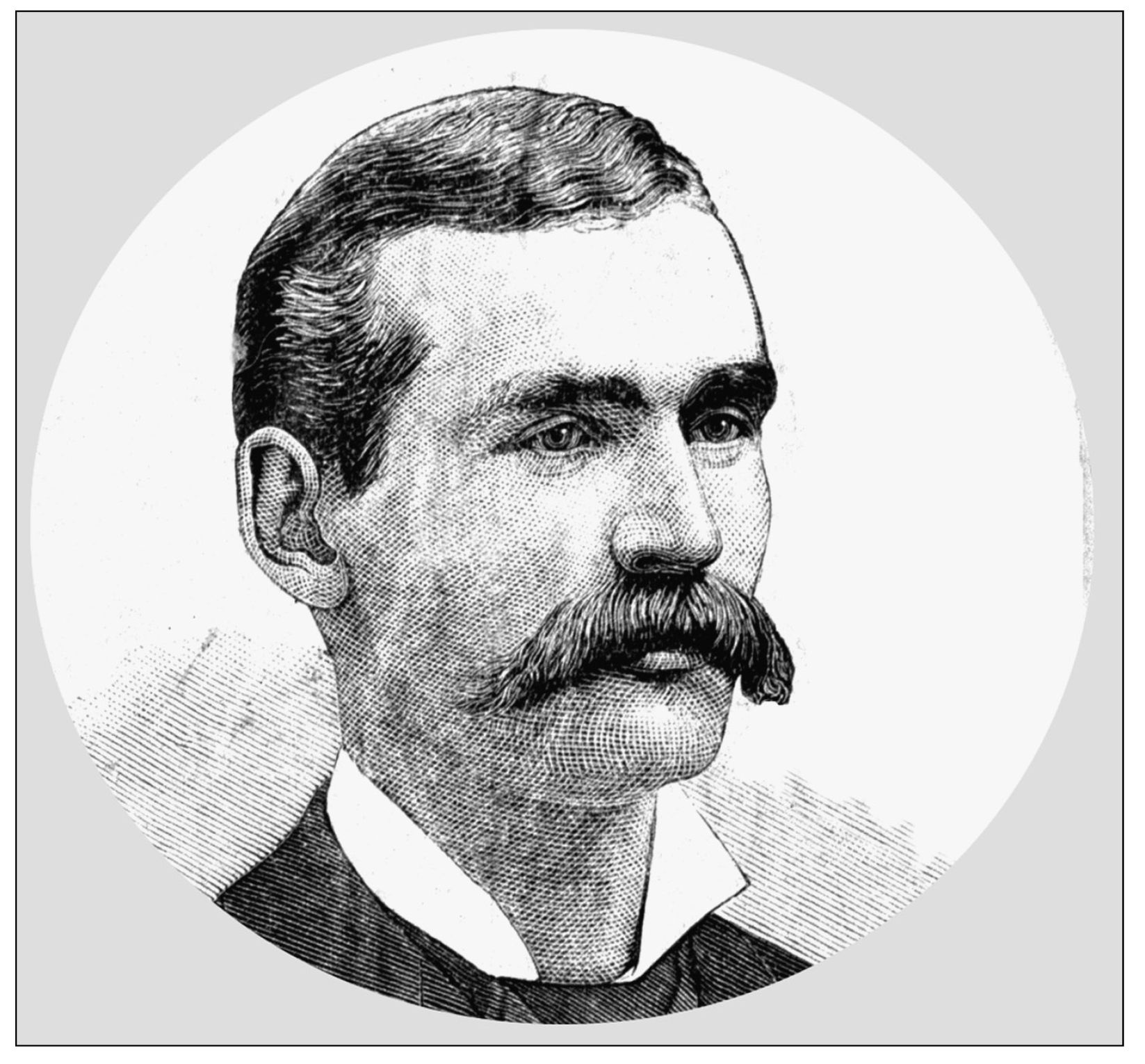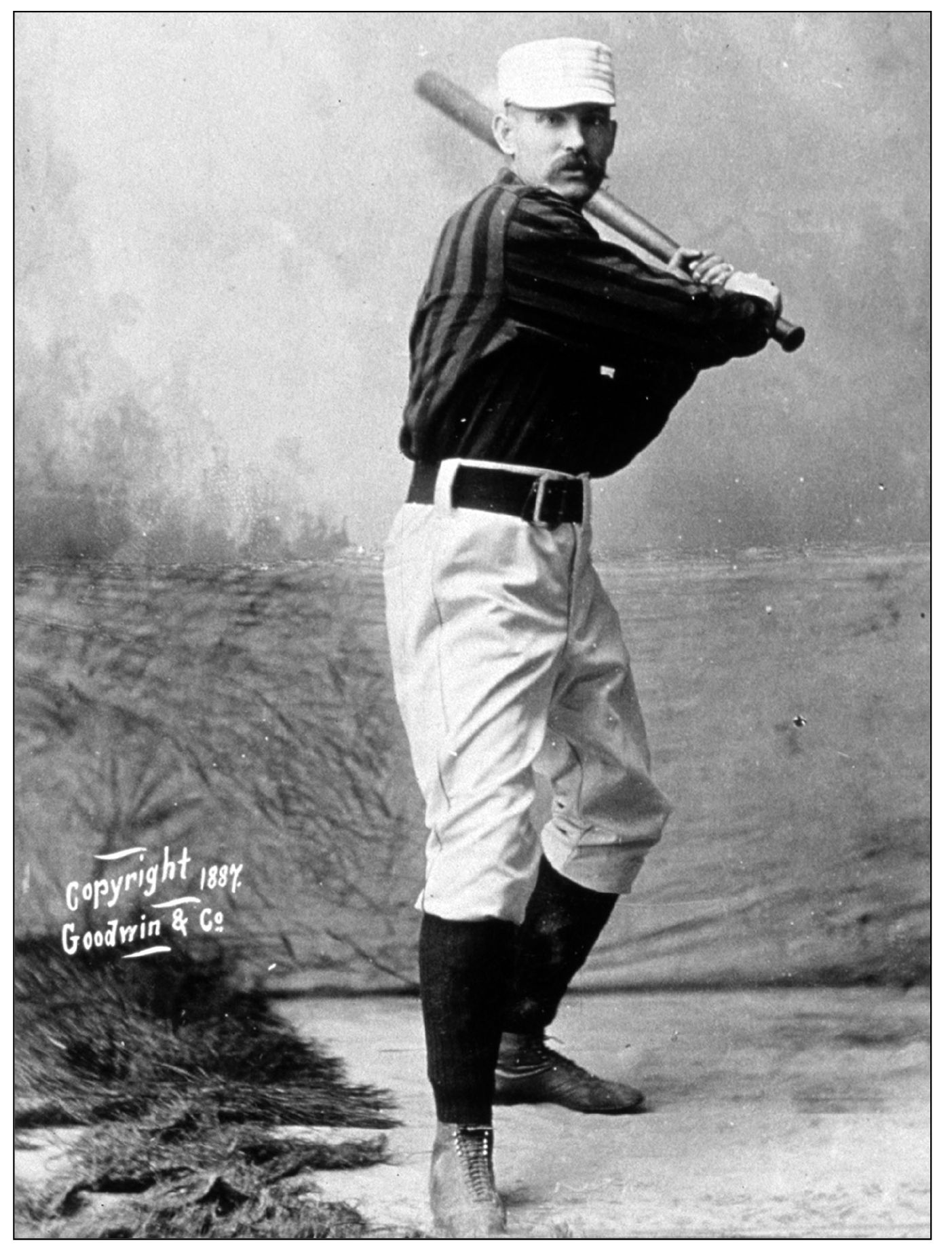One
18761899
The National League was formed in 1876 by the owner of Chicago White Stockings club, William Hulbert. Hulbert was tired of the teams in New York, Boston, and Philadelphia having control of the professional National Association, which was formed in 1871. The East Coast teams kept all the best players to themselves, keeping the top baseball talent away from cities in the Midwest. Hulbert invited the Midwest team owners to join him in starting a rival organization, and once they were onboard, he hand chose the other cities to join the National League.
Before this all took place, Hulbert took the liberty of signing arguably the best player in the league at that time, Al Spalding of the champion Boston Red Stockings, and sent Spalding back East to recruit some of his teammates. Spalding did just that. He brought Cal McVey, Deacon White, and Ross Barnesall great hittersback with him from Boston. Spalding also coaxed Hulberts hand-picked man, superstar Cap Anson, to come along as well from the Philadelphia Athletics. The first manufactured champion was born.
The 1876 White Stockings stood atop the standings with a 52-14 mark. Ross Barnes led the league in hitting with a stellar .429 average. Cap Anson (.356), John Peters (.351), and Cal McVey (.347), finished third, fourth, and fifth for the league batting title that season. Even their star pitcher, Spalding, who pitched almost every game (61), batted .311 that season. He retired from pitching after the season, and by 1878, only Anson remained from the 1876 club.
The White Stockings of the 1880s were the first real dynasty of baseball, winning five championships in a seven year span. Cap Anson took over managing the team in 1879 and promptly led them to a first place finish in 1880 with a 67-17 record. Chicago outfielder George Gore led the league in hitting with a .360 mark. The White Stockings had four hitters in the top five in the league; besides Gore, was Anson in second (.337), Abner Dalrymple in fourth (.330), and Tommy Burns in fifth (.309). In 1881, the White Stockings repeated the feat with a 56-28 record. Anson led the league in hitting with a .399 mark. In a tight race in 1882, the White Stockings beat the Providence team by three games, giving them back-to-back-to-back championships. The team ended with a 55-29 record. Anson finished second in hitting with a .362 average. After the Boston Beaneaters won in 1883 and the Providence Greys did the same in 1884, the White Stockings were on top of their game again in 1885, winning the pennant with an 87-25 record. George Gore led Chicago in hitting (.313), and was fifth best in the league. Chicago finished its championship run in 1886, going 90-34 for the season. King Kelly (career-high .388) and Anson (.371) finished one-two in hitting for the year.
King Kelly was sold after the 1886 season and the championship run quickly disappeared. The White Stockings were disassembled when the rogue Players League came into existence in 1890. Only Anson, Tommy Burns, and pitcher Bill Hutchinson stayed with the ball club. All others jumped to the Chicago Pirates of the Players League, which lasted one season. The young replacements garnered a new nickname for the team in the media, the Colts, because of their young ages, and never finished higher than the second division for the next few years.
After the 1897 season, Anson was not retained by the ball club, with Tommy Burns taking over the helm. The team was then dubbed the Orphans because they lost their Pop. Pop Anson, which was his nickname at the time, was 47 years of age when he hung up the spikes.
ADRIAN CONSTANTINE CAP ANSON
CAREER 18711897 CHICAGO 18761897
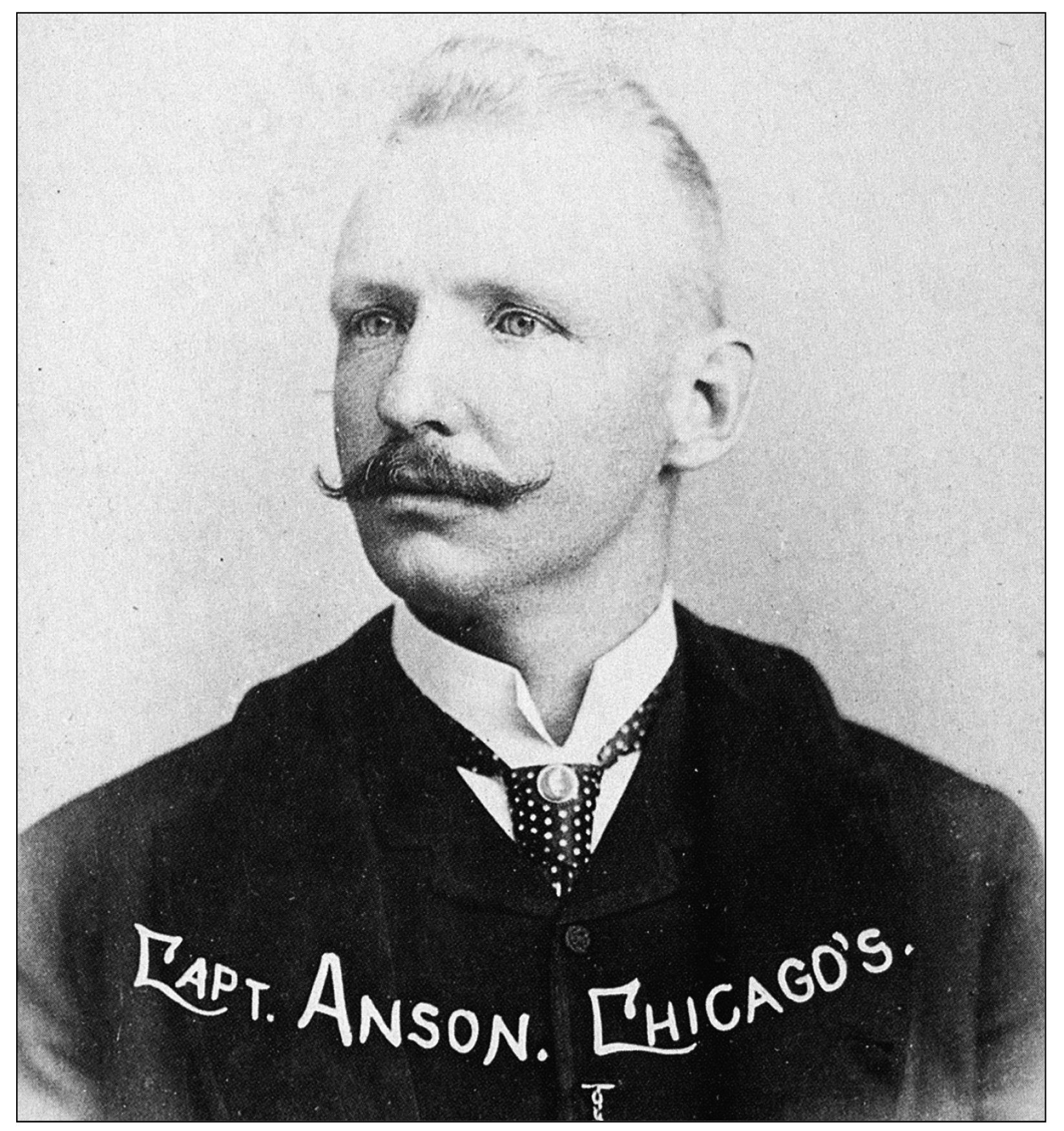
Cap Anson went by the nickname of Baby when he was still a teenager playing for the Marshalltown, Iowa team with his father Hank and his older brother, Sturgis. After a year at Notre Dame, Anson tuned pro in 1871 with the Forest City Club of Rockford. The club folded that year and Anson moved on to play for the Philadelphia Athletics of the old National Association, the professional league (18711875) that predated the National League (1876). He later went on to become known as Cap, during his peak ball playing years (18711890) and then Pop in the 1890s, when he was in his forties and still playing and managing the White Stockings. Anseanother of his many nicknamesled the league in RBIs with 82 in 1881, 147 in 1886, 84 in 1888, and 120 in 1891. The great Anson led the league in hitting with a .399 mark in 1881, a .344 average in 1888, and by hitting .388 in 1894 at the age of 42. Anson was also a fine manager. He managed the Chicago club from 1879 to 1897. Besides winning the championship in 1876 as a player, Anson managed White Stockings champions in the years of 1880, 1881, 1882, 1885, and 1886. Combined with his stats from his National Association years, Cap Anson was the first professional player with more than 3,000 hits in his career. He was an inaugural member of the Hall of Fame in 1939.
ROSCOE CONKLING ROSS BARNES
CAREER 18711881 CHICAGO 18761877
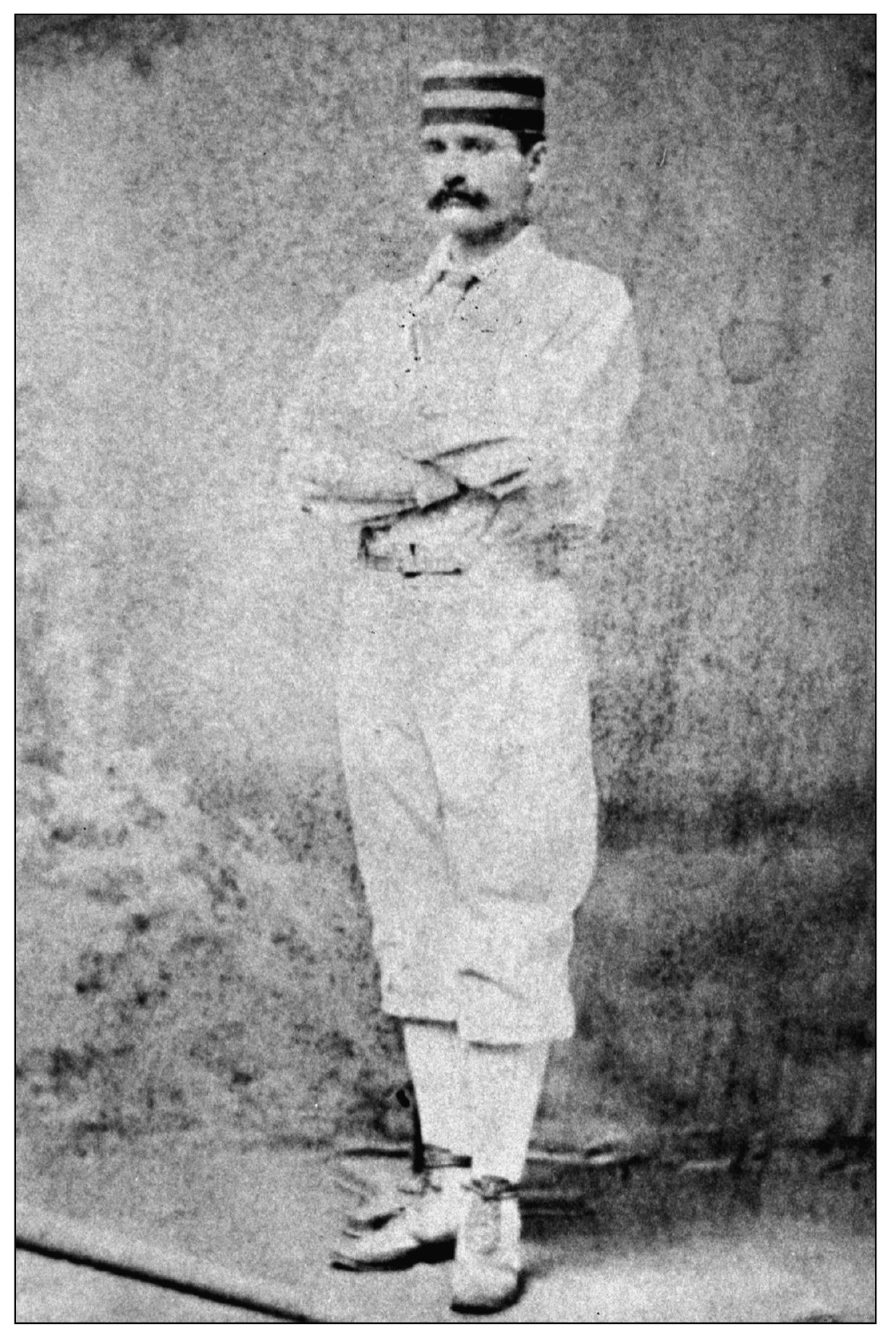
Barnes, last of the fair-foul hitters, scorched the National League in its inaugural year of 1876 with a league-leading .429 average. He was the master of the fair-foul hit, a ball that hits fair then goes foul (before the first or third base). Such a hit today would be a foul ball. Back then, it was a hit that had almost no way of defending against it. Most players struck short, lightly tapping the ball fair before it rolled foul, similar to todays bunt. What made the play hard to defend was the fact that first basemen wore no gloves, so throws to first would have to be made right on the money, or the ball would sail into right field, gaining extra bases for the batter. The fair-foul rule was abolished after the 1876 season, and Barnes average plummeted. He took up as a player-manager for Tecumseh Base Ball Club of London, Ontario, in 1878, and was out of baseball soon thereafter. Ross Barnes was also a baseball pioneer playing on the famous Forest City Club of Rockford with Albert Spalding and going on to play for the Boston Red Stockings, when the Forest City club disbanded in 1871. He became ill after the 1876 season and never played the same; while others blame it on the absence of the fair-foul rule.
GEORGE PIANO LEGS GORE
CAREER 18791892 CHICAGO 18791886

